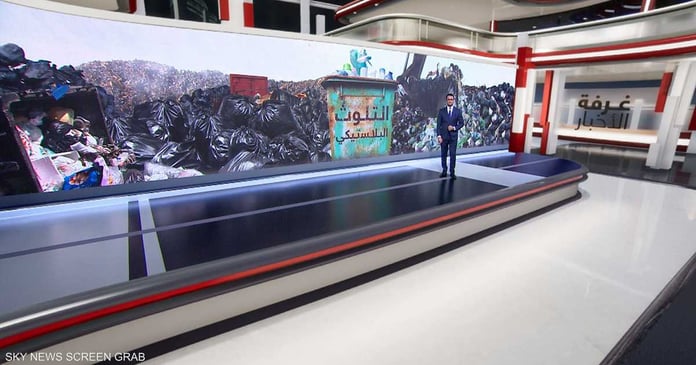She called on the United Nations to “do more” to reduce the “plastic pollution disaster”, which has been the focus of World Environment Day 2023 celebrations in Abidjan, which falls every year on June 5.
On this occasion, it was stated on the United Nations website that the world produces more than 400 million tons of plastic per year, of which 19 to 23 million tons are dumped in lakes, rivers and seas.
Previously, environment and climate ministers from the industrialized countries of the Group of Seven took the practical decision to set a target of ending all new plastic pollution in their countries by 2040, after a two-day meeting in Sapporo, northern Japan, in April.
“We are committed to eliminating plastic pollution, with the ambition of reducing all further plastic pollution to zero by 2040,” the ministers said at the time.
The most dangerous type of pollution
Why is plastic production and waste “the most dangerous type of pollution”? A member of the International Union for Conservation of the Environment, Ayman Qaddouri, responds to “Sky News Arabia”:
• The bottom of the oceans and seas suffers from the accumulation of millions of tons of plastic waste.
• These residues inhibit the process of oxygen production, which reduces its presence in the atmosphere, the marine environment being its first source on the surface of the planet.
• This waste is made up of a complex chemical composition called a polymer, which slowly breaks down and takes 50 to 600 years to break down, depending on the thickness of the plastics and the method of chemical arrangement of the polymer.
• As a result, this enormous quantity impedes the movement of marine organisms, and many of them perish after devouring the waste by obstructing the digestive tract.
• The most vulnerable marine organisms are turtles and whales. As with plants, plastic pollution destroys their capacity for photosynthesis. Because it blocks the sun’s rays, parts of thin plastic waste, such as plastic bags and lines, wrap around the plant body.
• Coral reefs are the biggest victims of plastic pollution; Because they are very sensitive and are affected by all variables, such as blocking sunlight, which threatens other marine organisms. Because corals are a link in the food chain.
• The danger does not stop with the accumulation of waste, but even after its decomposition, polluting chemical and organic substances such as methane gas are produced.
• On land, plastic pollution is several times that of the sea, and its forms are the result of plastic waste disposal, such as burning, which exacerbates the global warming crisis, adding 15 million tons of carbon pollution to the atmosphere, and the increase in methane, ethylene and polyethylene gases, which contribute to the process of global warming by 15%.
• Leaving plastic waste exposed to sun and heat without treatment, as well as recycling, produces gases such as methane, ethylene and polyethylene, especially from the bags.
Obstacles to the year 2040
By setting the year 2040 as the date for achieving “zero” plastic pollution, Qaddouri is not very optimistic. Although he describes it as a “legitimate ambition”, he considers it “far from being verified according to current data and the current economic situation”. Conflicts.”
At the same time, it encourages taking measures to reduce this pollution, even if combating it requires years beyond 2040, in particular:
• Reduce plastic industries, phase out the polymers that make up plastic and replace them with safe materials.
• Control of the production of other countries outside the Group of Seven, which occupy advanced positions in the production of plastics, such as China.
• These are actions that can lead us to encouraging results that help to continue the fight against plastic pollution beyond 2040.
Read the Latest World News Today on The Eastern Herald.


